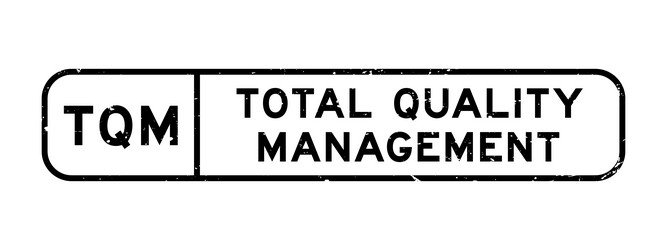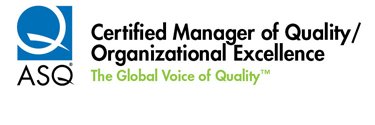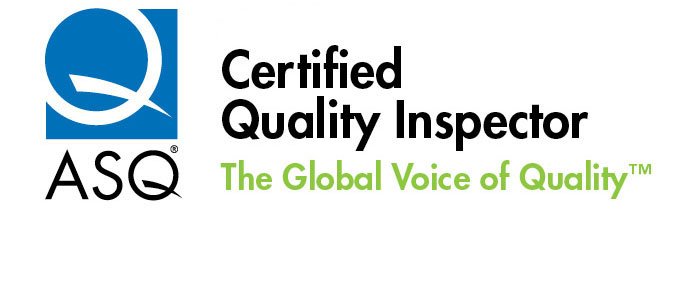Course Overview
Certified Quality Engineers Certification Training Course in UAE
A Certified Quality Engineer (CQE) is a professional trained and certified in quality engineering principles, with expertise in areas such as product and process quality, reliability, and risk management. The CQE certification, offered by the American Society for Quality (ASQ), is a globally recognized credential that validates a professional’s ability to apply best practices in quality management.
This certification involves rigorous training and examination, covering quality management systems, statistical methods, and continuous improvement. CQEs play a vital role in ensuring that products and processes meet high standards of quality, efficiency, and safety, contributing to an organization’s success by reducing costs and improving customer satisfaction.
Course Objectives
- Provide a thorough understanding of quality engineering principles and practices.
- Equip participants with the skills needed to identify and address quality-related issues in products and processes.
- Prepare participants for the CQE certification exam by covering all key topics in the ASQ Body of Knowledge.
- Enhance the ability to apply statistical methods and quality management tools in real-world scenarios.
- Foster a commitment to continuous improvement and high-quality outputs within organizations.
Key Features of the CQE Certified Quality Engineers Course
- Rigorous curriculum covering statistical methods, process control, reliability engineering, and quality management systems.
- Aligned with industry standards like ISO, lean methodologies, and Six Sigma.
- Practical emphasis on real-world case studies and projects.
- Instructors are experienced quality engineering professionals.
- Prepares candidates for the ASQ Certified Quality Engineer exam.
- Offers networking and continuous learning opportunities within a supportive community.
Prerequisites for Enrolling in the Certified Quality Engineers Training
Enrolling in the CQE Certified Quality Engineers training typically requires a strong foundation in quality management principles and relevant work experience. Candidates are usually expected to have a minimum of two years of professional experience in a quality-related role, although this may vary depending on the training provider. A basic understanding of statistical methods, process improvement, and quality control also benefits those looking to succeed in the course. Having a background in engineering, manufacturing, or a related field can further enhance a participant’s ability to grasp the advanced concepts covered in the CQE course.
Eligibility Criteria for the CQE Certification
- Eight Years of Experience: On-the-job experience in areas covered by the CQE Body of Knowledge.
- Education Adjustment: Higher education degrees can reduce the required work experience.
- Decision-Making Role: At least three years of experience in a decision-making capacity related to quality engineering.
Benefits of CQE Certification for Quality Engineers
- Career Advancement Opportunities: CQE certification opens doors to higher-level positions and leadership roles in quality management.
- Boosts Professional Credibility: Earning a CQE certification validates your expertise and commitment to quality, enhancing your reputation in the industry.
- Impact on Salary and Job Prospects: Certified quality engineers often experience increased salary potential and better job prospects due to their recognized qualifications and skills.
The Role of CQE Certified Quality Engineers in Various Industries
CQE Certified Quality Engineers play a pivotal role across various industries by applying their expertise to ensure high quality and efficiency in diverse settings. In manufacturing, CQEs are instrumental in optimizing production processes, reducing defects, and implementing quality control systems. In healthcare, they help maintain stringent standards for patient safety and regulatory compliance through effective quality management practices.
In the IT sector, CQEs contribute to software quality assurance, system reliability, and process improvement. By driving rigorous quality standards and continuous improvement initiatives, CQEs enhance operational excellence and contribute to the overall success and competitiveness of organizations in these sectors.
Maintaining and Renewing CQE Certification
Continuing Education Requirements:
- Engage in ongoing education through workshops, seminars, or courses related to quality engineering.
- Earn professional development units (PDUs) or continuing education units (CEUs) as required by the certifying body.
Keep Your CQE Certification Active and Relevant:
- Renewal Process: Submit a renewal application and fees before the certification expires.
- Stay Updated: Keep up with industry trends and advancements to maintain your knowledge and skills.
- Professional Involvement: Participate in quality-related professional organizations and contribute to industry discussions and standards.
Challenges Faced by CQE Certified Quality Engineers
Common Obstacles:
- Complex Problem-Solving: Addressing intricate quality issues that require advanced analytical skills.
- Regulatory Compliance: Keeping up with evolving industry standards and regulations.
- Resource Constraints: Managing quality improvements with limited resources and budget constraints.
Strategies for Overcoming Challenges:
- Continuous Learning: Stay updated with the latest industry trends, technologies, and best practices.
- Networking: Engage with other quality professionals and participate in industry forums to share knowledge and solutions.
- Effective Communication: Develop strong communication skills to articulate quality issues and collaborate effectively with cross-functional teams.
Why Choose CQE Course for Your Career in Quality Engineering?
Choosing a CQE course for your career in quality engineering offers a distinctive advantage due to its comprehensive coverage of quality management principles and global recognition. Unlike other certifications, the CQE provides a deep understanding of quality engineering practices, making it highly valued across diverse industries. Its focus on practical skills, such as statistical methods and process improvement, ensures that CQEs are equipped to handle complex quality challenges.
The long-term value of becoming a CQE Certified Quality Engineer lies in its ability to enhance career prospects, increase earning potential, and establish credibility as a skilled professional committed to maintaining high standards of quality in various organizational settings.
Why Choose CounselTrain for Certified Quality Engineer (CQE) Training in the UAE?
Choosing CounselTrain for Certified Quality Engineer (CQE) training in the UAE is a decision backed by numerous benefits tailored to professionals seeking excellence in quality engineering. With expert instruction from seasoned industry professionals, a comprehensive curriculum covering essential topics, and a customized approach to address local market needs, CounselTrain ensures participants receive top-tier education.
Target Audiance
- The target audience for ASQ-Certified Quality Engineers (CQE-ASQ) training is individuals who are interested in advancing their skills and knowledge within the field of Quality Engineering.
- This training course would be beneficial to anyone working in the manufacturing, healthcare, biomedical, and food safety industries, as well as anyone working in Quality management roles.
- CQE-ASQ training is also beneficial to any engineers or technologists who are looking to broaden their expertise in the quality field and receive professional certification.
Certified Quality Engineers (CQE) Training Course In UAE
The Certified Quality Engineers (CQE) training course in the UAE is crucial due to the growing emphasis on quality management and continuous improvement in the region’s diverse industries. With UAE’s rapid development across sectors such as manufacturing, healthcare, and IT, having a workforce proficient in quality standards is essential for maintaining competitive advantage and ensuring operational excellence. For students, the CQE course offers a pathway to a recognized certification that enhances their employability and career prospects in the UAE job market.
For company employees, CQE training equips them with advanced skills to implement effective quality control measures, drive process improvements, and contribute to organizational success. This certification not only bolsters individual qualifications but also supports companies in meeting international quality standards and achieving high levels of customer satisfaction.
Popular Training Courses
Certified Manager Of Quality/ Training | Certified Quality Auditor Training | Certified Quality Inspector Training | Lean Six Sigma Green Belt | Total Quality Management Training | CQE Course in Saudi Arabia | CQE Course in Oman



 4.8
4.8


